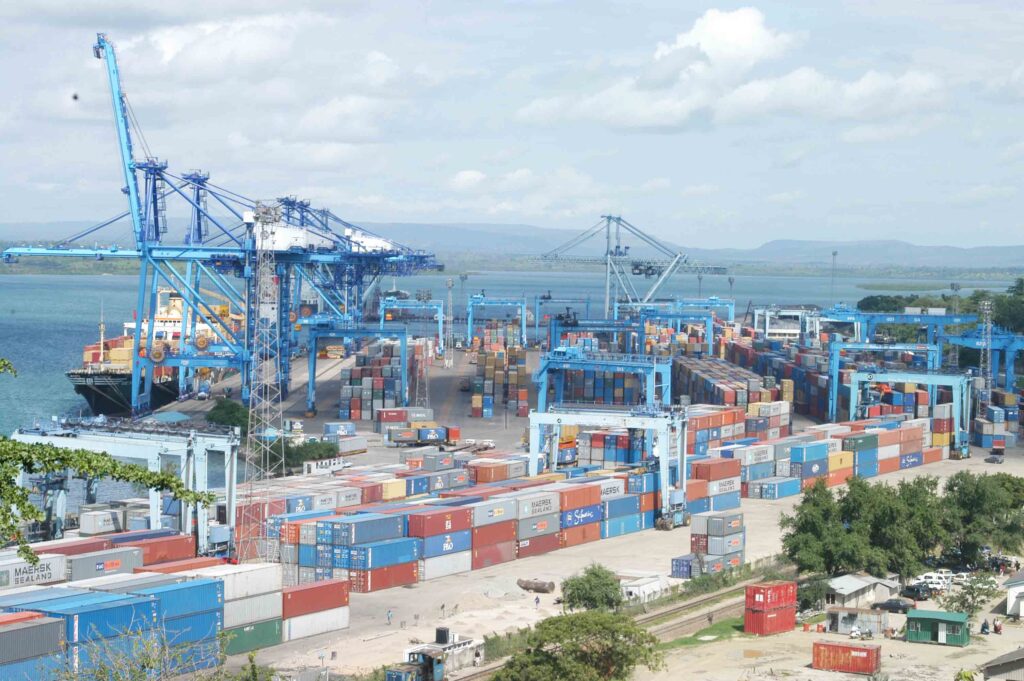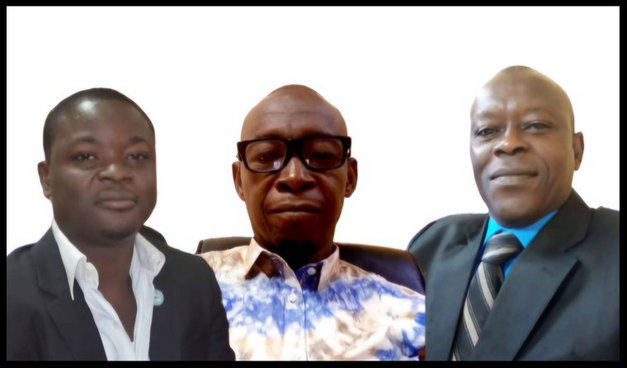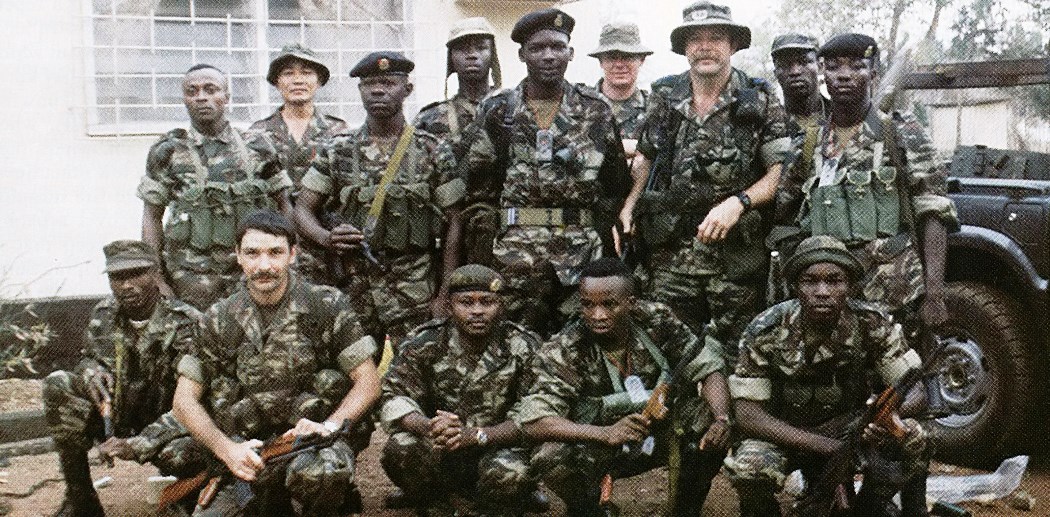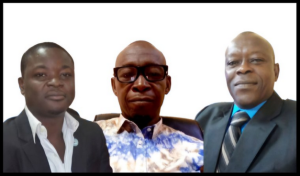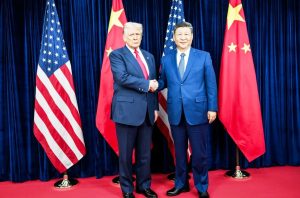Mombasa port’s container terminal. PHOTO/Marufu Mohamed
By ANDREW MWANGURA
Twice now, we have tried and lost the top IMO seat. So, what is it now that needs to be done next time?
It is imperative to establish the lesson learned and move on. We need to get down to start planning of how we can front a candidate who will possess 100% chance. Are we sea blind? Are we ill prepared? Doesn’t IMO need landlubbers? Is it because we aren’t amongst the top ship ownning countries in the world? Or is it because we are not among the top 10 flag states?
The top shipowning countries ranked by the commercial value of the fleet are: China, Germany, Greece, Japan and the US, according to United Nations Conference on Trade and Development (UNCTAD).
The top 10 flag states by registered tonnage are Panama, Liberia,Marshall Islands, Hong Kong, Bahamas, Singapore, Greece, Malta, China and Cyprus. Panama has the largest Maritime register followed by Liberia.
Apparently, IMO wants people with vision not mere administrators. It is instructive that the shipping industry is the backbone of World trade and its economy; therefore, it needs people with deep insight based in historic knowledge and specialist experience.
Way back in 1970s Dr. Srivastava from India was elected Secretary General of IMO because he had visionary policies that were required by IMO to correct the many mistakes that were prevalent in the shipping industry then.
The late Dr. C.P. Srivastava became the first chief executive of the Shipping Corporation of India and in 1974 was elected to serve as the Secretary-General of the International Maritime Organization (IMO), a United Nations agency based in London, serving successive four-year terms as Secretary-General from 1974 to 1989.
Dr. Srivastava was an institution-builder and international administrator with a Midas touch. That he was elected uncontested IMO Secretary-General for four consecutive terms — from 1974 until he voluntarily demitted office on December 31, 1989 — tells of his sheer charm and acceptance as an unbiased, influential leader.
He was its longest serving Secretary-General. The record remains unbroken. Dr. Srivastava as an eminent administrator was instrumental in setting up pioneering maritime training institutions such as the World Maritime University in Sweden and the International Maritime Law Institute in Malta.
He was the force behind key maritime conventions and codes that greatly contributed to enhanced crew safety, high training standards and security on the high seas, besides propagating a philosophy of cleaner, less-polluted oceans.
He was in the saddle when the IMO developed and validated landmark conventions including those on Standards of Training, Certification and Watch-keeping for Seafarers; Maritime Search and Rescue; Suppression of Unlawful Acts Against the Safety of Maritime Navigation; and the Protocol for the Suppression of Unlawful Acts Against the Safety of Fixed Platforms located on the Continental Shelf.
Spate of accidents in 1970s

An oil tanker discharging fuel at Shimanzi Oil Terminal. PHOTO/KPA
A spate of accidents in early 1970s led him to organize a decisive conference on tanker safety and pollution prevention. This facilitated introduction of measures affecting tanker design and operation, which were incorporated into the IMO’s Protocol of 1978 on the Safety of Life at Sea and the International Convention for the Prevention of Pollution from Ships.
Having cut his teeth in the Shipping Corporation of India as its founding chief executive, where he addressed issues of crew welfare and safety, besides diversifying the fledgling company into bulk shipping, Dr. Srivastava could effortlessly guide the IMO to take on greater responsibilities and roles.
Under his stewardship, the agency grew in membership strength and dimension, casting off its perceived elitism to reach out to developing nations, which constitute the majority of the body’s membership today.
He is remembered for the watershed maritime conventions drafted under his guidance for the safety of seafarers. Nearly 70 countries bestowed their highest honors on him. Among the numerous accolades that came his way was the title of Honorary Knight Commander of the Most Distinguished Order of Saint Michael and Saint George conferred by Queen Elizabeth-II.
During Dr. Srivastava’s tenure as Secretary-General, from 1974 until his retirement on 31 December 1989, IMO increased its membership considerably. Dr. Srivastava was well known for his relentless efforts to make IMO known to the developing world and for encouraging developing countries to join the “rich men’s club”, as IMO was often referred to at the time.
This shaped the structure of the Organization’s membership to its present status, whereby two-thirds of the 170-strong membership (and three Associate Members) is represented by developing countries, making a significant contribution to IMO.
Dr. Srivastava’s leadership of IMO is associated with the success of many instruments. They include 1978 Tanker Safety and Pollution Prevention (TSPP) Conference, and the development and adoption of the International Convention on Standards of Training, Certification and Watchkeeping for Seafarers (STCW), 1978; and the International Convention on Maritime Search and Rescue (SAR), 1979.
They include the Convention for the Suppression of Unlawful Acts Against the Safety of Maritime Navigation (SUA), 1988, and related Protocol for the Suppression of Unlawful Acts Against the Safety of Fixed Platforms located on the Continental Shelf, and many other treaties and Codes.
During his tenure, a comprehensive, pragmatic and co-ordinated program of technical co-operation was conceived and developed and effective steps were taken to promote its continuing implementation.
Dr. Srivastava will be remembered for his visionary and pioneering role and his ceaseless efforts in the establishment of IMO’s global educational institutions, including the World Maritime University (WMU), in Malmö, Sweden, and the International Maritime Law Institute (IMLI), in Malta.
Dr. C.P. Srivastava’s tenure as IMO Secretary General
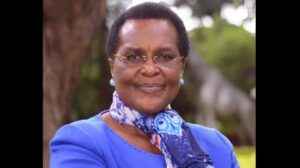
Nancy Karigithu was Kenya’s candidate for the IMO Secretary General’s post. PHOTO/FILE
He was born on 8 July 1920 and was educated in Lucknow, India (obtaining BA, MA and LLB degrees). He started his career as a civil servant in the Indian Administrative Service in India, serving as the district administrator in Meerut and Lucknow, and then went on to the post of Joint Secretary to the Indian Prime Minister's office of the late Lal Bahadur Shastri from 1964 to1966.
Early in his career, he found his forte in the field of seafarers training and welfare. During 1947 to 1948, he was the prime mover in the establishment of a network of new maritime training institutions, which have since produced world class maritime personnel, greatly facilitating the growth of Indian shipping in the years following Independence.
After a stint at the Directorate General of Shipping, he was appointed as the Founder Chief Executive of the Shipping Corporation of India, a Government of India enterprise, which he built up to the largest shipping company of India and one of the biggest and most successful shipping companies of the world, with a diversified fleet of cargo liners, tankers, bulk carriers and passenger ships.
For his exceptionally outstanding work as Chairman & Managing Director of the Shipping Corporation of India, he received the Padma Bhusan (one of the highest civilian awards in the Republic of India) in 1972 in recognition of his contributions to establishing one of the most successful public sector undertakings in India.
Dr. C.P. Srivastava become the first chief executive of the Shipping Corporation of India and In 1974 he was elected to serve as the Secretary-General of the International Maritime Organization (IMO), and was re-elected unanimously for three successive four-year terms, serving until his retirement in 1989.
As Secretary-General of IMO, Dr. C.P. Srivastava recognized the crucial importance of the human element in ensuring safety and efficiency in international shipping and played a pioneering role in the establishment of the International Maritime Academy in Italy, and the International Maritime Law Institute in Malta.
He was the founding father and also the first Chancellor of World Maritime University which was founded in 1983 to address a pressing need for trained maritime professionals in the developing world.
He was the inspired prime mover in the development of the concept of World Maritime University and IMLI, and in the immense job of planning, negotiating, fundraising, organizing and implementation that was required to take a vision and turn it into a reality.
In 1987 he was named an honorary graduate by the University of Wales. Just before his retirement from his post as IMO Secretary-General in 1989, the IMO Assembly, meeting for its 16th session, unanimously adopted a resolution (A.679 (16)), noting his retirement with regret and recording his services to IMO Member States.
Enhancing IMO’s leadership
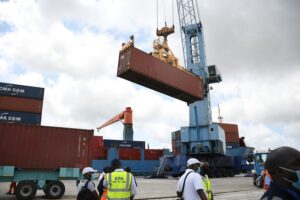
A crane discharging cargo from a ship at Mombasa port. PHOTO/FILE
The resolution noted that, throughout his tenure, which comprised four successive terms and lasted 16 years, Dr. Srivastava rendered exceptionally meritorious services to the Organization with total commitment to its ideals and objectives.
As a result of his leadership, integrity, dedicated endeavor and initiative, it said, the membership of the Organization stood greatly enhanced and its universality well established; many conventions and protocols had received wide acceptance and were now in force, promoting the objectives for the Organization of safer shipping and cleaner oceans and the IMO spirit of goodwill and co-operation has been sustained and enhanced.
It was during Dr. Srivastava’s tenure that a comprehensive, pragmatic and co-ordinated program of technical co-operation was conceived and developed and effective steps were taken to promote its continuing implementation.
The resolution went on to recognize the visionary and pioneering role of Dr. Srivastava, and his ceaseless efforts in the establishment of IMO’s educational institutions, including the World Maritime University and the International Maritime Law Institute.
In 1990, in recognition of his service and contribution to world shipping, Dr. C. P. Srivastava was conferred, by Queen Elizabeth II of the United kingdom, the title of Honorary Knight Commander of the Most Distinguished Order of Saint Michael and Saint George (KCMG).
In 1991, he received the International Maritime prize from IMO for his contribution to the Organization's work and objectives. In 2005 he was awarded the 2004 Lal bahadur Shastri National Award for Excellence in Public Administration and Management Sciences by the then President of India, A. P. J. Abdul Kalam.
In 2009, he was awarded the Padma Vibhushan, India’s second highest civilian award, by the President of India. Kenya lost the IMO post to Panamanian naval architect Arsenio Antonio Domínguez Velasco who will be the next secretary general of the International Maritime Organization (IMO) for the four-year period 2024-2027.
The Organization consists of an Assembly, a Council and five main Committees: the Maritime Safety Committee; the Marine Environment Protection Committee; the Legal Committee; the Technical Cooperation Committee and the Facilitation Committee and a number of Sub-Committees support the work of the main technical committee.
The Maritime Safety Committee is the most senior of these and is the main Technical Committee; it oversees the work of its nine sub-committees and initiates new topics.




